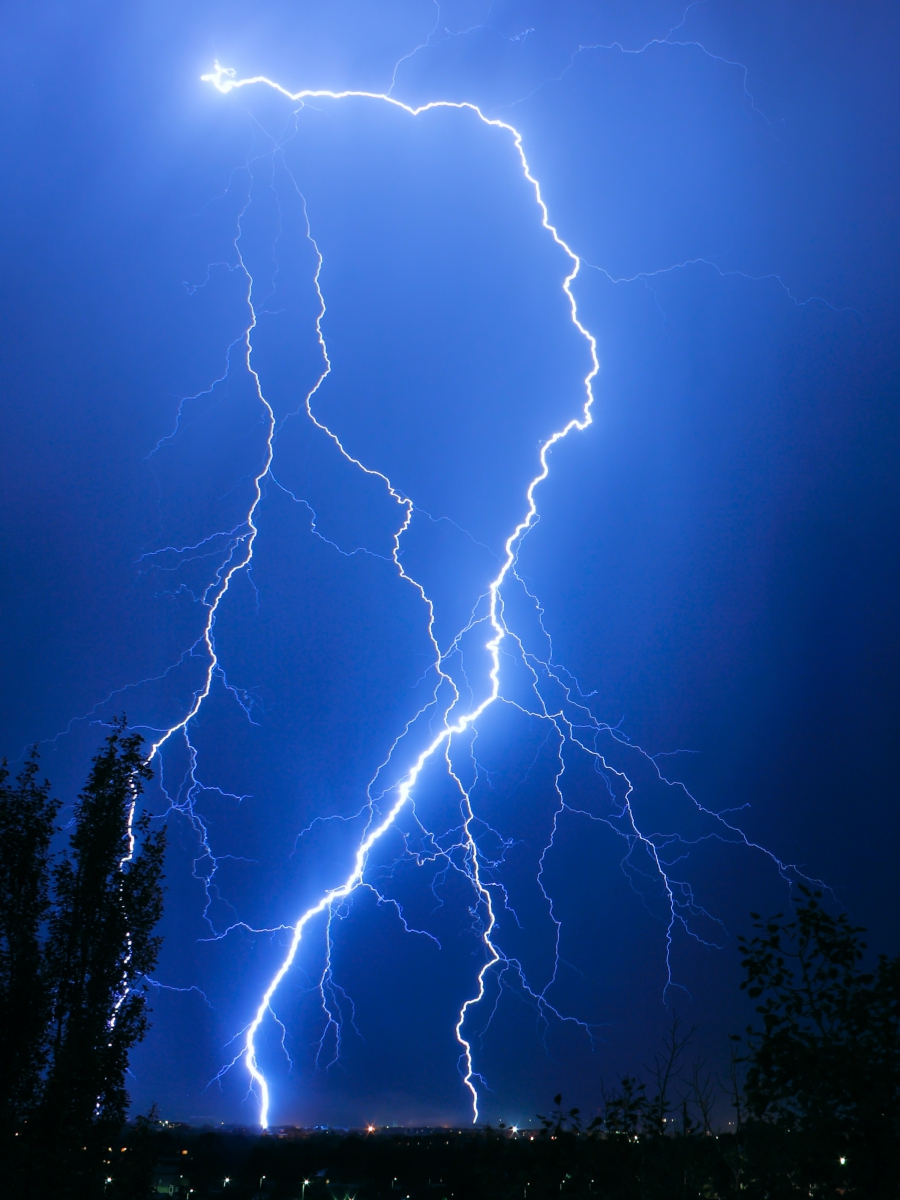TOP RATED LOCAL® LAWN CARE EXPERTS
A HIGHER LEVEL OF LAWN CARE
 Everyone knows that water and electricity don’t mix. But when you’re stuck in a rainstorm while weed whacking, are you in danger? We’ll explain.
Everyone knows that water and electricity don’t mix. But when you’re stuck in a rainstorm while weed whacking, are you in danger? We’ll explain.
Ever since the 1600’s when English scientist William Gilbert made a careful, detailed study of electricity, we’ve known that the flow of an electric charge and water do not mix. You’ve been warned of the dangers of swimming during a lightning storm or drying your hair in the bathtub, but what about weed whacking in a rainstorm?
As long as you use the proper equipment, operating an electric weed-eater in the rain isn’t as dangerous as one may assume
Though water does conduct electricity, the element itself is not the conductor – it’s the impurities suspended within the water that create the danger. Particles like minerals, dust and other minuscule elements contaminating the water are what create the dangerous current.
Using a weed-eater in the rain or in damp conditions doesn’t pose as much of a threat because the tool itself cannot conduct electricity – it’s the electrical cord that can. However, as long as you take the correct safety precautions when operating your weed eater in the rain, you should have little concerns about finishing your job – no matter the weather conditions.
- Use proper extension cords: There are several types of extension cords – all of which are used for different purposes. Be sure you use an outdoor extension cord and never use a cord or power strip that’s designated for indoor use only. These types of tools are not designed to handle outside elements and you can put yourself at great risk by using them outside in poor weather.
- Use correct outlets: Even if you have the proper cords or power strips for outside use, be sure your outdoor areas have proper electrical outlets. While newer homes are built to meet the National Electrical Code, many older homes were not.
If you’re uncertain of your electrical outlets, ask an electrician to ensure they are Ground Fault Current Interrupter (GFCI) receptacles and that they are installed on at least one separate 20 amp branch unit in order to accommodate high-wattage devices like power tools.
- Place on a dry surface: Take further precautions against an electricity mishap by placing the spot where the tool’s cord and the extension cord connect on a dry surface. You can also wrap the connection in electrical tape. These cords are designed for outside use and are insulated to ensure safety in wet conditions. Consider inspecting your cords before use to ensure there are no frayed, stretched or cracked areas or places where the insulation is missing.
It’s important to understand that, while weed whacking in the rain doesn’t pose a great threat, you shouldn’t make a habit of doing yard work in stormy or damp conditions. If you feel your equipment is not up to standard or if you are hesitant about using an electric tool in the rain, wait for better conditions to remove your weeds.
Request a Free Quote for Lawn Care and Landscaping in the Atlanta Area
Interested in turning your Georgia clay into lush, green grass? Request a free quote from the lawn care experts at WeedPro today!

